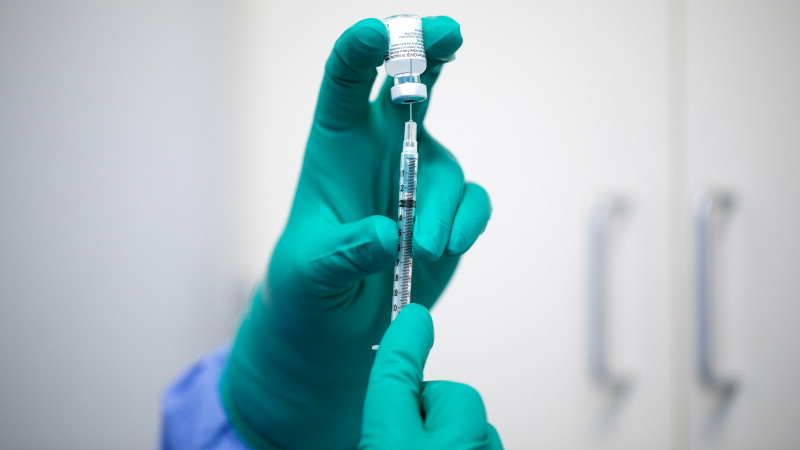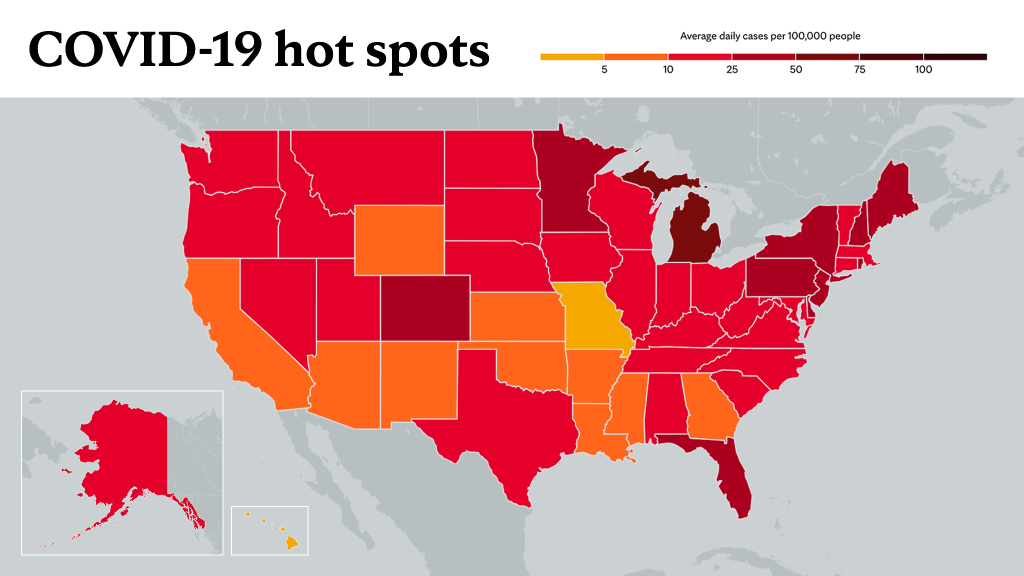
JACKSONVILLE, Fla. — A small study from Mayo Clinic researchers raises the concern that some transplant patients may have a limited immune response after being vaccinated for COVID-19 with an mRNA vaccine. Their findings are published as a letter to the editor in the American Journal of Transplantation.
The letter covers seven organ transplant recipients diagnosed with COVID-19 at Mayo Clinic in Florida six to 44 days after receiving either of the mRNA COVID-19 vaccines that have been authorized for emergency use by the Food and Drug Administration. Two patients had received one dose, and five patients had received both doses.
COVID-19 infection was confirmed in all patients with a polymerase chain reaction nasal swab test. The study team, led by Hani Wadei, M.D., a Mayo Clinic Transplant Center nephrologist, reports that five of the patients had severe enough infection to be hospitalized and three required oxygen when discharged.
Dr. Wadei and his team tested the blood of patients who had received a solid organ for spike antibodies to COVID-19, which would be the type of antibody generated by the vaccine. Of the six patients who were tested, antibodies to the spike protein were found in only one. That patient had received both mRNA vaccine doses 44 days prior and had a low titer of anti-spike antibody. Using available vaccination data, Dr. Wadei and his team estimated that the infection rate in vaccinated solid organ transplant recipients was 10 times higher than the general population ― 0.6% versus 0.05%.
"This study is eye-opening for the transplant community," says Dr. Wadei. "Our study suggests that transplant patients don't have the same immune response as the general population. They got infected after getting vaccinated and lifting protective measures, thinking they were immune to the virus."
The researchers note that transplant patients were excluded from current vaccine studies. Another vaccine, based around an adenovirus vector and authorized for use by the FDA, was not reviewed by Mayo researchers in this study, as it was not available to Mayo patients.
"Care should still be implemented in vaccinated solid organ transplant immunocompromised patients until we have better vaccine strategies," says Dr. Wadei. "All individuals, especially transplant patients, should continue to follow protective measures, such as social distancing, mask-wearing and regular hand hygiene."
The researchers are calling on further studies to test for vaccine efficacy in transplant patients, examine post-vaccine infection rate and identify methods to boost the vaccine-related immune response in these patients. The next step in their research is to test all vaccinated solid organ transplant recipients at Mayo Clinic in Florida for anti-spike antibodies, with the goal of expanding studies to additional transplant patients at Mayo's other campuses in Arizona and Minnesota.
Other authors on the paper are Thomas Gonwa, M.D.; Juan Carlos Leoni Moreno, M.D.; Sadia Shah, M.D.; Nabeel Aslam, M.D.; and Leigh Speicher, M.D. ― all from Mayo Clinic.
For the full author list and disclosure information, see the published paper.
###
About Mayo Clinic
Mayo Clinic is a nonprofit organization committed to innovation in clinical practice, education and research, and providing compassion, expertise and answers to everyone who needs healing. Visit the Mayo Clinic News Network for additional Mayo Clinic news. For information on COVID-19, including Mayo Clinic's Coronavirus Map tracking tool, which has 14-day forecasting on COVID-19 trends, visit the Mayo Clinic COVID-19 Resource Center.
Media contact:
- Tia Ford, Mayo Clinic Public Affairs, newsbureau@mayo.edu
____________________________________________
Leading US hospitals team up to promote COVID-19 vaccination
Information in this post was accurate at the time of its posting. Due to the fluid nature of the COVID-19 pandemic, scientific understanding, along with guidelines and recommendations, may have changed since the original publication date.
For more information and all your COVID-19 coverage, go to the Mayo Clinic News Network and mayoclinic.org.
Learn more about tracking COVID-19 and COVID-19 trends.








